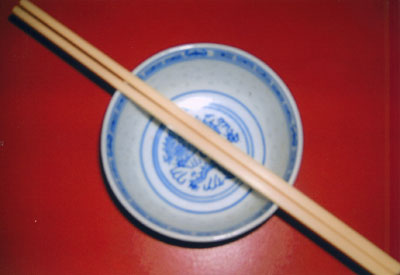All Nonfiction
- Bullying
- Books
- Academic
- Author Interviews
- Celebrity interviews
- College Articles
- College Essays
- Educator of the Year
- Heroes
- Interviews
- Memoir
- Personal Experience
- Sports
- Travel & Culture
All Opinions
- Bullying
- Current Events / Politics
- Discrimination
- Drugs / Alcohol / Smoking
- Entertainment / Celebrities
- Environment
- Love / Relationships
- Movies / Music / TV
- Pop Culture / Trends
- School / College
- Social Issues / Civics
- Spirituality / Religion
- Sports / Hobbies
All Hot Topics
- Bullying
- Community Service
- Environment
- Health
- Letters to the Editor
- Pride & Prejudice
- What Matters
- Back
Summer Guide
- Program Links
- Program Reviews
- Back
College Guide
- College Links
- College Reviews
- College Essays
- College Articles
- Back
Double lidded
As a child, my parents always sighed at my lack of double eyelids. Apparently, as soon as I was out of the womb my mother checked out the status and sadly informed my father that I had not inherited her eyelids. Most parents count fingers and toes, but I guess the pain of childbirth made her forget that part and focus on my double eyelid deficiency. Being Chinese, it was considered a blessing to be born with big eyes and double lids, as most grew up with the stereotypical squinty eyes. So, in junior high, when other girls developed womanly traits and I developed double eyelids, I thought that I had been blessed. Who needed wider hips? I had double eyelids. I was set.
“Wake up!” a classmate said to me.
“I’m not sleeping,” I replied, confused.
“I know! You just look like you are, ‘cause you’re Asian!” he cackled and high fived his friend.
Hurt and still confused, I pulled out a mirror and checked to make sure my eyes had not returned to their congenital state. They hadn’t. I didn’t understand. Their joke didn’t even apply to me. And that was when I realized: it didn’t matter how big my eyes or how thick the creases on my eyelids were. Upon first impression, I was “that” Asian girl, and always would be. Every stereotype that surrounded Asians would follow me. To them, all Asians were the same.
And so, I dove into the task of Americanizing myself as much as possible. I shopped at Abercrombie and followed all of the typical American tween trends. Gone were the scallion and pork dumplings for lunch; I ate a turkey sandwich instead. When my parents spoke to me in public, their broken English embarrassed me. If they asked me to speak in Chinese so that they could better understand me, I would get annoyed. Once the star student at my local Chinese school, I quickly lost that status as I insisted on dropping out. When my parents refused, I chose to sit in class with a pout on my face, believing that I was too American for it. My reflection in the mirror, I thought, was one of an American teenager.
As a result, my parents carted me off to Taiwan for a month so that I would be forced to embrace my heritage. They disliked this new Twinkie of a daughter they had (yellow on the outside, white on the inside), and wanted their old one back. The specific events of that trip did not matter. What mattered was that the American who stepped onto the plane to Taiwan returned as a Chinese-American. Turkey sandwiches and Abercrombie had lost their appeal, and so did everything that they represented. So what if I would always be seen as an Asian? That was who I was, who I am, and always will be. Hiding my heritage only prevented me from reaching my potential. By emulating the other girls, I lost not only my cultural identity, but my core self. My likes and dislikes had been dictated by what was “accepted,” and kept me from formulating my own opinions of the world. Regaining pride of my culture opened my eyes to what I really thought about anything. Now, in my reflection I see a proud Chinese-American girl staring back. So, when one day my friend cackled, “HACHIMA!” I reminded him, “I don’t speak Korean. I’m Chinese. And no, it’s not all the same.”
As for my double eyelids, well, those are still something I feel blessed about. The only difference is, now I see them as a trait that makes me stand out from other Asians, instead of something that exempts me from being a target of squinty eyed Asian jokes.

Similar Articles
JOIN THE DISCUSSION
This article has 1 comment.

I can totally relate with you one hundred and ten percent.
You did a good job touching upon a touchy subject of the stereotypes and bullying that can come from being Asian.
But like you said, its hard to get rid of it.
I enjoyed it very much!
Good job!